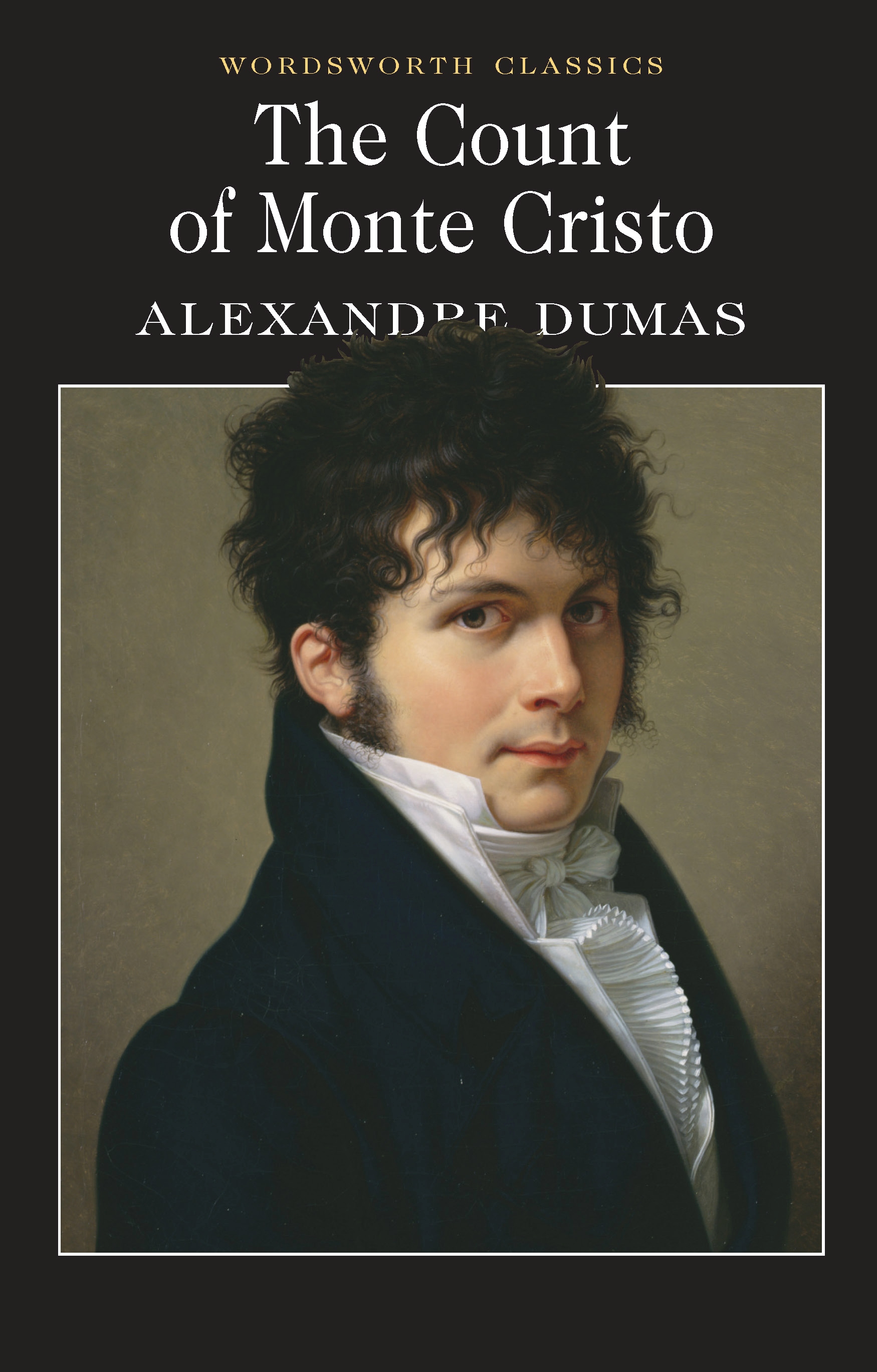Revisiting The Count Of Monte Cristo: A Modern Perspective

Table of Contents
Themes of Revenge and Justice in The Count of Monte Cristo
The Allure of Revenge
Edmond Dantes's quest for revenge forms the emotional core of The Count of Monte Cristo. His journey, fueled by betrayal and wrongful imprisonment, explores the intoxicating and ultimately destructive nature of revenge. The novel doesn't shy away from the moral ambiguity of his actions; while we sympathize with his suffering, the brutality of his methods raises important ethical questions.
- Societal Implications of Revenge: Dumas masterfully portrays how revenge, while initially satisfying, often leads to further suffering and destruction, impacting not only the intended targets but also innocent bystanders. Edmond's actions have cascading consequences, highlighting the societal cost of unchecked vengeance.
- Revenge vs. Justice: The novel subtly blurs the lines between revenge and justice. While Edmond seeks to punish those who wronged him, his methods often exceed the bounds of a just legal system, forcing the reader to confront the complexities of both concepts.
- Ethical Dilemmas: Edmond's transformation from an innocent, hopeful young man to a calculating mastermind raises significant ethical dilemmas. Is his pursuit of justice justified, even if his methods are morally questionable? This question remains relevant today, prompting ongoing debates about the limits of retribution.
- Modern Relevance: The compelling nature of revenge remains a powerful force in modern narratives. From popular films to real-life events, the desire for retribution continues to fascinate and disturb us, underscoring the timeless relevance of this core theme in The Count of Monte Cristo.
Justice and the Law in 19th Century France
Dumas's depiction of the 19th-century French judicial system is a crucial element of the narrative. The novel highlights the corruption, prejudice, and inherent flaws within the system that allowed for Edmond's wrongful imprisonment. This injustice fuels his desire for revenge and becomes a catalyst for his transformation.
- 19th-Century vs. Modern Legal Systems: Comparing the legal system depicted in The Count of Monte Cristo to modern systems reveals significant advancements, but also enduring challenges. While due process and judicial oversight have improved, instances of wrongful convictions and systemic biases continue to plague legal systems worldwide.
- Corruption and Injustice: The novel vividly portrays the corruption and influence-peddling that permeated the 19th-century French legal system. These elements mirror similar issues in modern justice systems, highlighting the timeless struggle for fairness and equity.
- Miscarriage of Justice: Examples of miscarriage of justice in modern times, from wrongful convictions based on flawed evidence to biased judicial processes, directly echo the injustices suffered by Edmond Dantes, demonstrating the enduring relevance of the novel’s central conflict.
Enduring Characters and Their Modern Relevance
Edmond Dantes: A Complex Anti-Hero
Edmond Dantes's character arc is one of the novel's greatest strengths. His journey from a naive, optimistic young man to the cunning and vengeful Count of Monte Cristo is a compelling study of transformation under duress.
- Motivations and Methods: Edmond's motivations are initially rooted in a desire for justice, but his methods become increasingly ruthless as his quest for revenge consumes him. This evolution makes him a complex and fascinating anti-hero.
- Hero or Villain?: The question of whether Edmond is ultimately a hero or a villain remains a point of debate. He delivers justice, but at a steep human cost. His actions force the reader to confront the moral complexities of revenge and the blurred lines between right and wrong.
- Modern Archetypes: Edmond Dantes's character resonates with modern archetypes of the wronged individual seeking retribution, the anti-hero with a justified cause, and the morally ambiguous protagonist who makes difficult choices.
Supporting Characters and Their Roles
The supporting characters in The Count of Monte Cristo are equally compelling, contributing significantly to the narrative's complexity and thematic richness.
- Fernand Mondego, Danglars, Villefort, and Mercedes: Each of these characters plays a crucial role in Edmond's downfall and subsequent rise. Their motivations – ambition, jealousy, self-preservation – are vividly portrayed and contribute to the intricate web of relationships and betrayals that drive the plot.
- Character Flaws and Relationships: The flaws and failings of these characters are essential to understanding Edmond's motivations and the overall narrative. Their relationships with Edmond, marked by both love and betrayal, highlight the complexities of human interaction.
- Modern Adaptation: A modern adaptation might explore these characters' motivations with a more nuanced psychological approach, potentially offering different perspectives on their actions and the relationships they have with Edmond.
The Count of Monte Cristo's Continued Influence on Popular Culture
Adaptations and Reinterpretations
The Count of Monte Cristo has inspired countless adaptations across various media, demonstrating its enduring appeal and adaptability.
- Film and Television: Numerous film and television adaptations, from the classic 1934 version to more recent interpretations, have reimagined the story for modern audiences. These adaptations often update the setting, characters, and themes to resonate with contemporary viewers while maintaining the core narrative.
- Video Games and Other Media: The story's dramatic potential has also led to adaptations in video games and other forms of media, further cementing its place in popular culture. These diverse adaptations showcase the novel’s inherent flexibility and enduring narrative power.
- Reasons for Continued Adaptation: The novel's themes of revenge, justice, betrayal, and redemption continue to hold universal appeal, making it a rich source material for adaptation across various platforms and genres.
Thematic Legacy and Modern Echoes
The enduring influence of The Count of Monte Cristo extends beyond its numerous adaptations. Its themes continue to resonate in contemporary literature, film, and popular culture.
- Themes in Contemporary Media: The novel's exploration of revenge, justice, betrayal, and redemption is reflected in countless modern works. From films exploring the consequences of vengeful actions to television shows depicting systemic injustice, the novel's themes continue to shape narratives.
- Continuing Relevance: The central conflicts of The Count of Monte Cristo – the struggle for justice, the corrupting influence of power, and the enduring allure of revenge – remain strikingly relevant in today's world, making the novel's message timeless.
Conclusion
The Count of Monte Cristo remains a powerful and relevant work of literature, captivating audiences with its thrilling plot, complex characters, and exploration of enduring themes. The novel's exploration of revenge, justice, and the complexities of human nature continues to resonate with readers and viewers in the 21st century. Its enduring appeal lies in its timeless themes and the powerful characters who embody them. We encourage you to revisit The Count of Monte Cristo – or read it for the first time – and consider its themes within your own life and the contemporary world. Explore the numerous adaptations available and share your thoughts on The Count of Monte Cristo and its modern relevance in the comments below! Perhaps you'll even be inspired to delve into further reading about the author, Alexandre Dumas, or other works exploring similar themes of revenge and justice.

Featured Posts
-
 Anna Kendricks Shell Crop Top My Summer Must Have
May 05, 2025
Anna Kendricks Shell Crop Top My Summer Must Have
May 05, 2025 -
 Sandhagen Vs Figueiredo Complete Results And Highlights From Ufc On Espn 67
May 05, 2025
Sandhagen Vs Figueiredo Complete Results And Highlights From Ufc On Espn 67
May 05, 2025 -
 Ufc Bogeymans Knockout Victory Controversy Surrounds Mc Gregor Sparring Partner Fight
May 05, 2025
Ufc Bogeymans Knockout Victory Controversy Surrounds Mc Gregor Sparring Partner Fight
May 05, 2025 -
 Plant Vs Berlanga Fight In Jeopardy Contract Remains Unsigned
May 05, 2025
Plant Vs Berlanga Fight In Jeopardy Contract Remains Unsigned
May 05, 2025 -
 Trump Tariffs And Global Investment Insights From Nicolai Tangens Approach
May 05, 2025
Trump Tariffs And Global Investment Insights From Nicolai Tangens Approach
May 05, 2025
